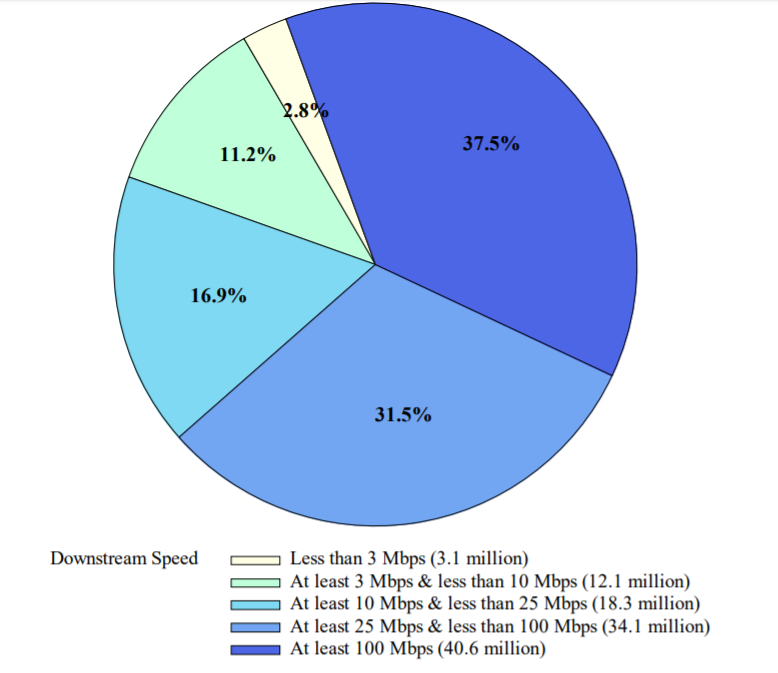FCC Releases 'Latest' Broadband Speed Report
The smarter way to stay on top of the multichannel video marketplace. Sign up below.
You are now subscribed
Your newsletter sign-up was successful
As of the end of 2017, the most recent data the FCC has crunched for broadband deployment and speeds, 85% of residential fixed broadband connections had speeds of at least 10 Mbps downstream and 1 Mbps upstream.
That is according to a just-released FCC accounting of carrier-reported mobile and fixed speeds (form 477) as of December 2017, numbers that could clearly have changed in the intervening almost two years. The FCC has also conceded that the form 477 data has issues.
Distribution of Fixed Connections (108.2 million) by Downstream Speed

With those caveats, the data showed 70% of connections had speeds of at least 25 Mbps downstream/3 Mbps up, and 39% with speeds of at least 100 Mbps downstream. The FCC points out that the 25 Mbps upstream speed was up from 44% of connections in 2014.
California led the way among residential fixed connections of at least 100 Mbps with 4.175 million, followed by New York with 3.287 million and Texas with 2.698 million. Wyoming brought up the rear among states with 17,000.
The data was released by the FCC's new office of Economics and Analytics.
Mobile connections showed the greater growth, percentage wise, increasing 4.5% between December 2016 and December 2017. Fixed connections were up about 2% over the same period.
The smarter way to stay on top of the multichannel video marketplace. Sign up below.
But the bureau said it believes the mobile connection number remains under reported "by as much as 5%."
The FCC has recently adopted a new broadband data-collection methodology that should provide more granular broadband deployment data, and more opportunity for that data to be vetted and corrected via crowd-sourcing.
The commission has been under pressure from both sides of the aisle in Congress to improve data collection, and FCC chair Ajit Pai has conceded the data has to get better, particularly so that Universal Service Fund broadband subsidies can be targeted to where they are most needed, furthering his goal of weeding out waste, as well as fraud and abuse, in subsidy programs.
Contributing editor John Eggerton has been an editor and/or writer on media regulation, legislation and policy for over four decades, including covering the FCC, FTC, Congress, the major media trade associations, and the federal courts. In addition to Multichannel News and Broadcasting + Cable, his work has appeared in Radio World, TV Technology, TV Fax, This Week in Consumer Electronics, Variety and the Encyclopedia Britannica.

